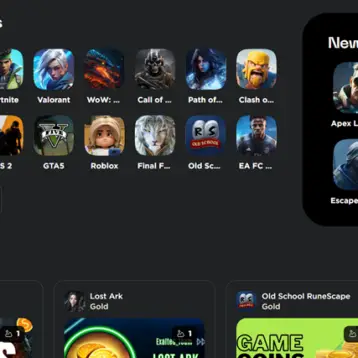
When you think of bingo, the first image that comes to mind might be a crowded bingo hall filled with laughter and excitement. It’s easy to dismiss the game as something purely driven by luck. But ask a seasoned player, and they’ll tell you bingo involves much more than crossing out random numbers. Especially online, where the pace quickens, and features like power-ups and multi-card play are introduced, bingo becomes a game of strategy and skill.
Surprisingly, the simple act of playing bingo can help you develop cognitive and decision-making skills. From quick thinking to resource management, the game offers lessons that extend far beyond its virtual or physical cards. And if you’re exploring bingo games that pay real money, you’ll quickly see how strategy can transform your chances of success.
Bingo Isn’t Just Luck – It’s About Skill
People often think bingo is all about numbers being called and luck determining the winner. However, every experienced player knows the truth: bingo is about recognizing patterns, making decisions quickly, and managing resources wisely.
Recognizing Patterns in Chaos
Think about it. As the numbers roll in, you aren’t just crossing them off blindly. You’re scanning your card (or cards) for rows, corners, or other specific combinations that signal a win. Recognizing these patterns under pressure isn’t just about reflexes—it’s about teaching your brain to filter out unnecessary noise and focus on what matters most.
Quick Decisions Make All the Difference
Numbers in online bingo are called rapidly. The pace demands immediate decisions. Do you mark that number now, or do you check the next card first? The mental juggling act strengthens your ability to process information and act decisively—skills that can come in handy during high-stress moments in real life.
Strategic Thinking on the Spot
In many online bingo games, the stakes are higher because of added features like multi-card play or purchasable power-ups. Deciding when to buy extra cards or use special boosts can make or break your game. This level of resource management mirrors real-world situations like budgeting or planning for long-term goals.
Strengthening Focus
Staying focused during a fast-paced bingo game is a skill in itself. It’s easy to lose concentration with so many numbers being called, but successful players know how to tune out distractions and stay locked in. This kind of mental discipline can translate directly to everyday challenges, from staying productive at work to managing tasks at home.
Understanding Bingo Game Patterns
What separates casual players from the pros is their understanding of bingo game patterns. It’s not just about marking numbers—it’s about anticipating which combinations are most likely to appear and planning your moves accordingly. This ability to think strategically under pressure is a skill that extends far beyond gaming.
Using Bingo to Hone Real-Life Decision-Making Skills
The skills you develop while playing bingo aren’t confined to the game. They show up in real-life scenarios more often than you’d expect.
At Work
In high-pressure environments, being able to process information quickly and make confident decisions is critical. Bingo helps you practice exactly that. Think of it as a training ground for handling deadlines, solving problems, or managing unpredictable situations.
At Home
Even outside the workplace, the ability to focus and manage resources wisely can make life run more smoothly. Whether you’re planning a family budget or organizing a chaotic schedule, the skills you practice in bingo can make a real difference.
Emotional Resilience
Let’s face it—bingo isn’t just about wins. Losses are just as much a part of the experience, and learning to handle them with grace can build emotional resilience. Over time, this ability to manage highs and lows calmly will benefit you in almost every area of life.
Bingo as a Brain-Boosting Activity
Scientists have long praised activities like bingo for their ability to stimulate the brain, particularly in older adults. But the cognitive benefits are just as valuable for younger players.
Keeping the Mind Active
Playing bingo regularly is like a mental workout. The game engages your brain by combining memory, focus, and strategic thinking all at once. This kind of multitasking keeps your mind sharp and ready for complex challenges.
Stress Relief
Bingo is inherently fun, and that enjoyment has its own mental health benefits. Taking a break from daily stress to immerse yourself in the game can leave you feeling refreshed and focused when you return to your responsibilities.
Tips for Using Bingo as a Skill-Building Tool
If you want to get more than just entertainment value from bingo, it helps to approach the game strategically. Here are a few tips to get started:
Start with One Card
If you’re new to bingo or haven’t played in a while, begin with a single card to get comfortable with the game’s pace. As you build confidence, add more cards to challenge your focus and multitasking abilities.
Practice in Distraction-Free Settings
Playing in a quiet space with minimal distractions allows you to concentrate fully. Over time, this focus will become second nature, even in more chaotic environments.
Learn from Every Game
Reflect on your performance after each game. Were you too slow in recognizing a pattern? Did you miss marking a key number? Analyzing your gameplay can help you pinpoint areas for improvement.
Explore Competitive Features
Online bingo often includes extra challenges like power-ups or tournaments. Participating in these can push your strategic thinking to the next level.
Conclusion: A Game with Endless Benefits
At first glance, bingo might seem like a simple numbers game. But spend a little time playing, and you’ll see how much it challenges your mind. Whether you’re recognizing patterns, thinking on your feet, or managing multiple tasks at once, bingo has a unique way of honing skills that matter in real life. And if you’re playing bingo games that pay real money, those lessons become even more meaningful as you learn to balance risks and rewards effectively.
The next time you play, think of it as more than just a game. Every number called is a chance to strengthen your focus, refine your decision-making, and develop skills that will serve you well long after the final number is marked.










